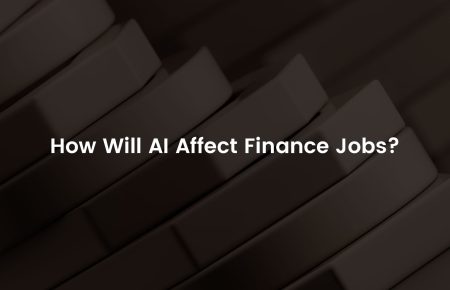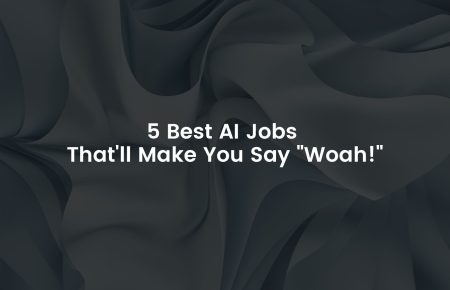The world of Artificial Intelligence (AI) is booming, folks! From chatbots answering your customer service questions to algorithms recommending your next binge-watch, AI is woven into the fabric of our daily lives. This rapid growth has created a massive demand for skilled AI professionals, and the good news is, you don’t necessarily need a fancy piece of paper to land a coveted spot in this exciting field.
While a traditional academic path can be a great foundation, it’s not the only road to success in AI. This article is here to be your personal guide on how to get a job in AI without a degree. So, get ready to demystify the world of AI and unlock your career potential.
Building a Strong Foundation in Artificial Intelligence
Establishing a strong foundation is crucial for success in any field, and Artificial Intelligence (AI) is no exception. This section will outline the essential skills and knowledge required to build a solid base in AI, even without a traditional academic background.
Core Skills:
- Programming Proficiency: Proficiency in a programming language such as Python is critical for success in AI. Python’s readability, extensive libraries, and widespread use within the AI community make it an ideal choice for beginners.
- Mathematical Fundamentals: A solid understanding of linear algebra and statistics is highly beneficial. These foundational mathematical concepts play a vital role in data analysis, a cornerstone of AI development and application. While an in-depth knowledge may not be necessary initially, familiarity with these concepts will significantly enhance your ability to grasp and utilize various AI techniques.
Understanding the Fundamentals of AI:
It is vital to grasp the core concepts of AI to navigate this dynamic field effectively. Here’s a brief overview of some key areas:
- Machine Learning (ML): ML allows computers to learn from data without explicit programming. By analyzing and identifying patterns in data, ML algorithms can make predictions or perform specific tasks with increasing accuracy over time.
- Deep Learning (DL): Inspired by the structure and function of the human brain, DL utilizes artificial neural networks to process information. These intricate networks are capable of learning complex patterns from vast amounts of data, enabling them to perform tasks such as image recognition or natural language processing with remarkable accuracy.
- ural Language Processing (NLP): NLP focuses on enabling computers to understand and manipulate human language. This technology allows for tasks like sentiment analysis, machine translation, and chatbot development, significantly impacting various applications.
Accessing Resources:
Numerous reputable online platforms like Coursera, edX, and Khan Academy offer introductory courses and tutorials in programming, mathematics, and AI fundamentals. Additionally, many online resources and bootcamps cater specifically to individuals seeking to build their AI skill set without a formal degree. Remember, consistent learning and a commitment to continuous improvement are key to building a strong foundation in AI.
Gaining Practical Experience in Artificial Intelligence
Having established a solid foundation in theory, the next crucial step involves acquiring practical experience in applying your knowledge to real-world scenarios. This section delves into two key avenues for developing practical skills in the field of Artificial Intelligence (AI):
Engaging in Personal Projects
Engaging in personal projects provides an invaluable opportunity to consolidate theoretical understanding by applying newly acquired skills to practical problems. It is recommended to begin with modest, achievable projects that allow for the gradual application of learned concepts. Here are a few introductory project ideas to consider:
- Development of a Basic Chatbot: This project facilitates exploration of natural language processing (NLP) by constructing a program capable of engaging in rudimentary conversational interactions.
- Creation of an Image Classifier: This project allows you to delve into machine learning by training an algorithm to identify specific objects within images.
- Construction of a Music Recommendation System: This project facilitates exploration of collaborative filtering techniques, employed by streaming services to recommend music based on user preferences.
It is imperative to commence with manageable projects and incrementally increase complexity as your experience grows.
Meticulously documenting your progress is crucial. Record your journey, including encountered challenges and the solutions devised. Platforms like GitHub offer a platform to showcase your projects and contribute to the open-source community. Additionally, disseminating your work within online AI communities can yield valuable feedback and foster connections with other aspiring AI professionals.
Leveraging Online Platforms and Competitions
Several online platforms offer stimulating and competitive environments to further refine your practical skillset:
- Kaggle: This platform hosts numerous machine learning competitions utilizing real-world datasets. Participating in these competitions allows you to hone your problem-solving abilities and compete with a global community of AI practitioners.
- Platforms like TensorFlow Playground and Colaboratory: These interactive platforms provide hands-on tutorials and experiments designed to facilitate learning and experimentation with various AI concepts and tools within a user-friendly environment.
Active engagement with these platforms provides precious hands-on experience, facilitates the construction of a portfolio showcasing your expertise, and exposes you to the prevailing advancements and trends shaping the field. Embrace the opportunity to explore, experiment, and consistently challenge yourself to enhance your capabilities.

Sharpening Your Skills
The dynamic and ever-evolving landscape of Artificial Intelligence (AI) necessitates a dedication to lifelong learning and continuous skill development. This section explores two crucial pathways for individuals to refine their expertise in the field, fostering a competitive edge in the global job market:
Structured Learning and Industry-Recognized Credentials:
Numerous reputable online platforms, such as Coursera, edX, and Udacity, offer a diverse array of structured courses and professional certifications encompassing various AI specializations. These courses provide a well-defined learning trajectory, often led by industry experts, and equip learners with the in-depth knowledge and practical skills highly sought after by employers.
Benefits of pursuing structured learning:
- Comprehensive and Well-Defined Curriculum: Ensures a logical progression of learning, building upon foundational concepts for a solid understanding of the field.
- Expert Instruction: Gain invaluable insights and knowledge from seasoned professionals working at the forefront of AI development.
- Industry-Recognized Credentials: Demonstrate your commitment to continuous learning and potentially enhance your employability by showcasing your acquired qualifications.
Contributing to Open-Source Projects
The vibrant AI community flourishes on collaboration and open-source initiatives. These projects allow individuals to contribute their expertise to the ongoing development and improvement of existing software tools and frameworks, fostering innovation and collective learning.
Benefits of participating in open-source projects:
- Real-World Experience: Apply your theoretical knowledge to practical applications, contributing to real-world projects such as model development or framework improvement.
- Developing Collaborative Skills: Learn to work effectively within a team environment, collaborating and contributing towards a shared goal alongside other developers.
- Building a Compelling Portfolio: Showcase your contributions to the open-source community, potentially increasing your professional visibility and demonstrating your collaborative spirit and problem-solving abilities.
Engaging with beginner-friendly open-source projects serves as an excellent entry point, offering valuable experience and fostering collaboration with other aspiring AI practitioners. Remember, the AI community thrives on open communication and knowledge sharing. Actively engage with others, seek guidance from experienced professionals, and contribute meaningfully to the collective knowledge base.
Throughout your career, remember that success in AI hinges on your unwavering commitment to continuous learning, acquisition of relevant skills, and active engagement with the broader AI community. By embracing these avenues, you can effectively broaden your knowledge base, gain valuable practical experience, and position yourself for a successful career in AI, regardless of your formal academic background.
Landing Your First AI Job
Having refined your expertise and honed your skills, it’s time to translate your efforts into landing your first fulfilling AI role. This section delves into three key strategies for successfully navigating the job market:
Building a Robust Network:
- Engaging with the AI Community: Actively participate in industry events, online forums, and professional communities dedicated to AI. This allows you to connect with established professionals, gain valuable insights into the field, and potentially forge meaningful relationships.
- Leveraging Networking Platforms: Utilize platforms like LinkedIn to connect with AI professionals in your target area. Don’t hesitate to reach out and seek mentorship opportunities from experienced individuals who can offer valuable guidance and support on your career journey.
Crafting a Compelling Resume and Portfolio:
- Targeted Tailoring: Always tailor your resume to specific AI job descriptions. Highlight relevant skills, experience, and projects that directly align with the requirements listed by the employer. This demonstrates your understanding of the specific role and showcases your suitability for the position.
- Showcasing Your Accomplishments: Create a compelling portfolio that highlights your AI accomplishments. Showcase your best projects, including open-source contributions, personal projects, or any relevant work experience. Utilize visual aids like charts, graphs, or code snippets to effectively communicate your technical skills and achievements.
Preparing for a Stellar Interview:
- Anticipating Interview Questions: Dedicating time to researching common AI interview questions allows you to prepare thoughtful and insightful responses. Practice your problem-solving skills by working through sample interview questions or engaging in mock interviews with professionals or peers.
- Demonstrating Passion and Commitment: During interviews, express your passion for AI and your enthusiasm for learning and growth. Highlight your willingness to learn and your dedication to continuous improvement. This demonstrates strong character traits vital for success in AI.
Remember, the job search can be a journey, so maintain perseverance and a positive attitude. Networking, showcasing your skills, and preparing for interviews are crucial steps in securing your first AI role. By actively engaging with the community, effectively communicating your capabilities, and demonstrating your passion and commitment, you can successfully navigate the job market and embark on a rewarding career in the exciting world of AI.
Conclusion: How to Get a Job in AI Without a Degree?
The ever-evolving field of Artificial Intelligence presents an abundance of exciting opportunities, and the good news is, a traditional academic path is not the only gateway to a fulfilling career in AI. This guide has outlined several key strategies, from building a strong foundation and gaining hands-on experience to honing your expertise and securing your first AI role, demonstrating that a successful career in this field is achievable for everyone, regardless of their educational background.
Remember the key takeaways:
- Develop a strong foundation: Master essential programming and mathematical skills, and gain a basic understanding of core AI concepts.
- Gain practical experience: Engage in personal projects, participate in online platforms and competitions, and contribute to open-source initiatives.
- Continuously learn and refine your expertise: Pursue structured learning opportunities and actively engage with the AI community.
- Build your network and showcase your skills: Connect with professionals, tailor your resume and portfolio, and prepare effectively for interviews.

FAQs
How can I start a career in AI without a degree?
- Begin by self-learning AI fundamentals, engaging in online courses, building projects to showcase your skills, and networking with industry professionals.
What skills are essential for a job in AI without a formal degree?
- Key skills include programming, machine learning, data analysis, problem-solving, and practical experience through projects or internships.
Are there specific industries that are more open to hiring in AI without a degree?
- Tech startups, small to medium-sized enterprises, and companies with a focus on innovation are often more flexible about educational qualifications.
How important is building a portfolio for getting a job in AI?
- A strong portfolio demonstrating your AI projects and skills can significantly boost your chances of getting hired, showcasing practical experience and expertise.
Can networking help me find a job in AI without a degree?
- Yes, networking is crucial. Attend industry events, join AI-related forums, and connect with professionals on platforms like LinkedIn to uncover opportunities.
How can I stay updated with AI industry trends?
- Follow AI news sources, join online communities, and participate in workshops or webinars to keep abreast of the latest developments and opportunities.
What online resources can help me learn AI?
- Platforms like Coursera, Udemy, and edX offer courses in AI and machine learning, providing valuable knowledge and skills development.
How do I demonstrate my AI skills to potential employers?
- Develop a personal website or an online portfolio showcasing your projects, participate in AI competitions, and contribute to open-source projects.
Are certifications important for getting a job in AI?
- While not a substitute for a degree, certifications can complement your portfolio, demonstrating your commitment to learning and mastery of specific AI skills.
What is the significance of continuous learning in an AI career?
- AI is a rapidly evolving field, so continuous learning is essential to stay relevant, enhance your skills, and advance in your career.




